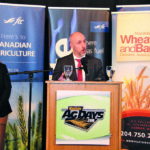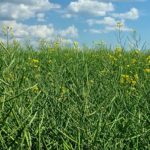Manitoba farmers planning their wheat variety selection for 1898 could consult these results from the Indian Head Experimental Farm published in the January issue of The Nor-West Farmer. Two full pages of tables also had results for wheat seeding at different dates, rates and depths; on hoe drills versus press drills, and on the effect













